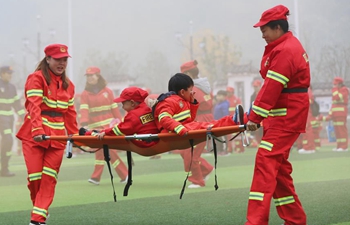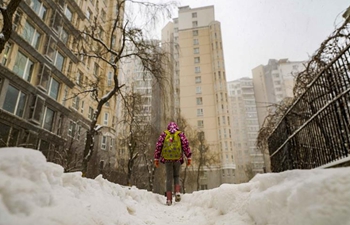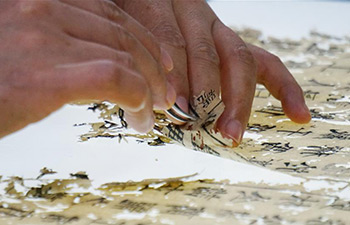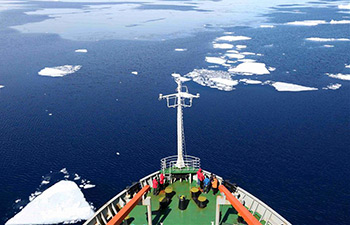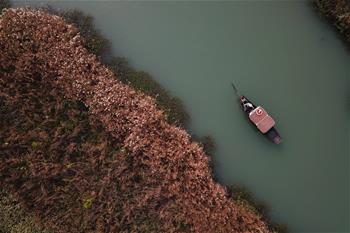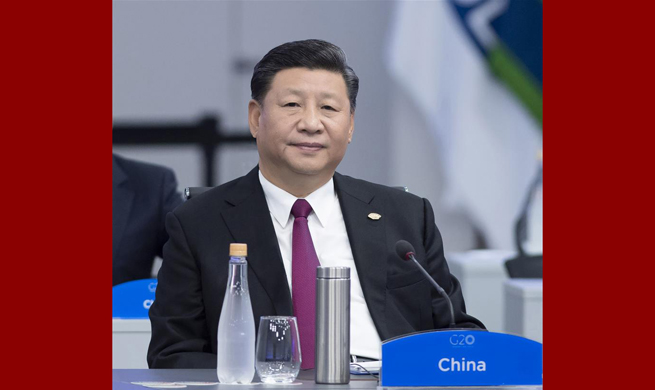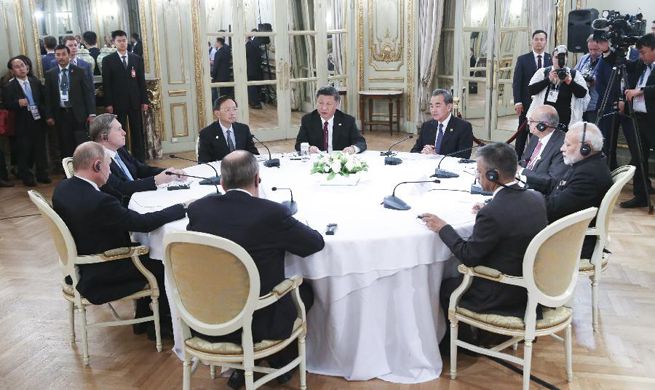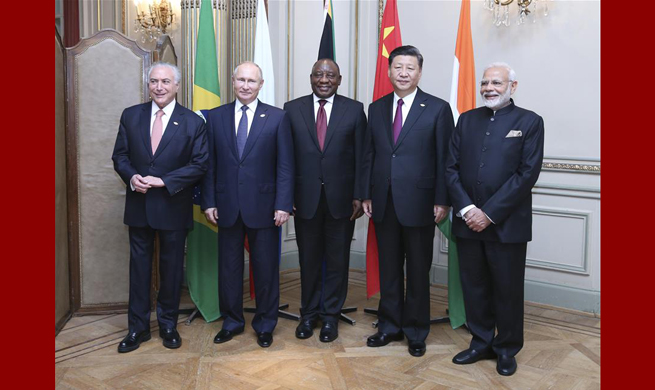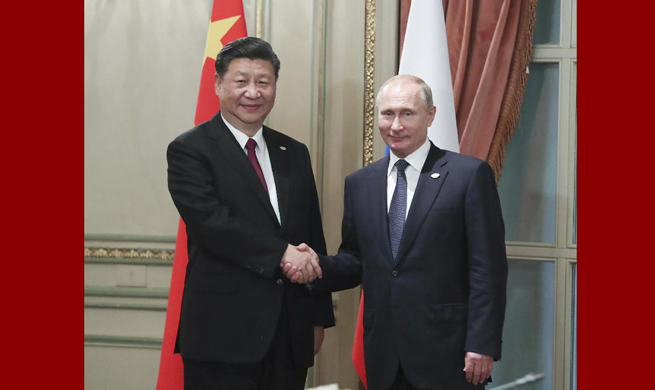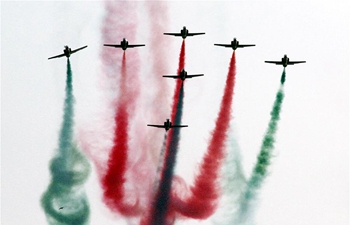ISTANBUL, Dec. 1 (Xinhua) -- Turkish President Recep Tayyip Erdogan may revive a previously failed effort to resolve the country's Kurdish issue following local elections in March next year, said analysts.
"I expect Erdogan would probably relaunch the settlement process following the elections," Umit Firat, a Kurdish intellectual told Xinhua as a ruling party delegation studied federal system in Germany.
REVEALING DEVELOPMENTS
The previous effort by the ruling Justice and Development Party (AKP) to settle the decades-old Kurdish issue and the terrorism problem failed in 2015 after more than two years of negotiations.
Firat, a columnist for the kurdistan 24. net news website, says that the revival of the settlement process will almost inevitably be on Turkey's agenda next year.
"It's Erdogan and some of those around him who should know best that the current situation is not sustainable," he said, adding the issue would be on foreign powers' radar as well as Kurds in neighboring Syria seek autonomy.
The Kurdistan Workers' Party (PKK), blacklisted as a terrorist organization by Turkey, the United States and the European Union, has been fighting a bloody war since 1984 for an autonomous, if not independent Kurdistan, in Turkey's predominantly Kurdish southeast.
Developments over the past week suggest that the revival of the settlement process may be in the works.
"We exchanged views about the federal system," Ravza Kavakci, an AKP deputy, tweeted following a visit to Germany's Bundesrat, a legislative body that represents the 16 federated states of Germany.
A group of intellectuals, who served as members of a committee of wise persons in Ankara's previous attempt to settle the Kurdish issue, met in Norway's Oslo last week.
The wise persons, whose role was to eliminate the Turkish public's misgivings about the settlement process, discussed their experiences in the failed effort, according to local media.
Gokhan Gunaydin, a member of party council with Turkey's main opposition Republican People's Party, feels that the meeting in Oslo must have been organized in coordination with the AKP, although it was officially done by the Britain-based Democratic Progress Institute.
The AKP deputy's message about federal system, like the Oslo meeting, was aimed at winning over Kurdish voters ahead of the local elections, Gunaydin told Xinhua.
ANKARA'S ATTITUDE IMPORTANT
Turkey is set to hold critically important local elections at the end of March in 2019.
It is argued that Erdogan may feel pushed to call for snap presidential election in case the AKP loses major cities like Istanbul and Ankara to the opposition.
Kurdish voters who support both the AKP and the pro-Kurdish Peoples' Democratic Party (HDP) would strongly back such an initiative, Vahap Coskun, who teaches law at Dicle University in Diyarbakir, southeastern Turkey, told Xinhua.
The AKP negotiated with the PKK through HDP deputies during the past settlement process.
The choice of Oslo as the venue for the meeting of wise persons is widely seen as significant, as earlier negotiations involving Turkey's intelligence agency in 2009 with PKK representatives are widely known as "Oslo talks."
Coskun, a former member of the wise persons committee who also attended the Oslo meeting last week, denied any involvement of the AKP in the organization of the session.
In his view, any renewal of the settlement process is more closely tied to Ankara's attitude toward the Kurdish entity in Syria than to domestic circumstances.
If Turkey and the Democratic Union Party (PYD) in northern Syria could manage to talk and reach a consensus in a general way, it would create a positive atmosphere for the settlement process to restart at home, argued Coskun.
The PYD, the political wing of the Kurdish militia known as the People's Protection Units (YPG), has established two self-declared autonomous cantons in northeastern Syria along the Turkish border by taking advantage of the war in the Arab state.
Ankara sees the U.S.-backed YPG as the PKK's Syrian offshoot and a major national security threat.
However, then PYD leader Salih Muslim was hosted in Turkey for talks several times in 2013 and 2014 when the settlement process was in progress.
According to local media, Ankara cut off ties with Muslim and declared the YPG a terror group after Muslim rejected its demand that the Kurdish militia cooperate with rebel groups and fight the Syrian government.
Despite Ankara's insistent calls in the past, the YPG did not give up establishing autonomous cantons along the Turkish border either.
"In addition, if the PKK ends armed struggle in Turkey, then a new door may be opened for a settlement," said Coskun.
An earlier indication that Erdogan may be planning to relaunch the settlement process was given by Ahmet Uysal, director of the Ankara-based Center for Middle Eastern Studies, in a July interview with the Rudaw news website in the Kurdistan region of Iraq.
Uysal, known to be close to the ruling AKP, said in the interview that he expected Erdogan to continue with the settlement process following the local elections.
He argued that Erdogan would take up the issue following the polls, otherwise the AKP's potential cooperation with the opposition Nationalist Movement Party (MHP) in the local polls could be impossible.
The AKP has now joined forces with the MHP for the elections.
The state can simply give its Kurdish citizens their rights without engaging in negotiations with the HDP or the PKK, Firat argued, saying the government may then negotiate with the PKK over the terms for laying down arms.




